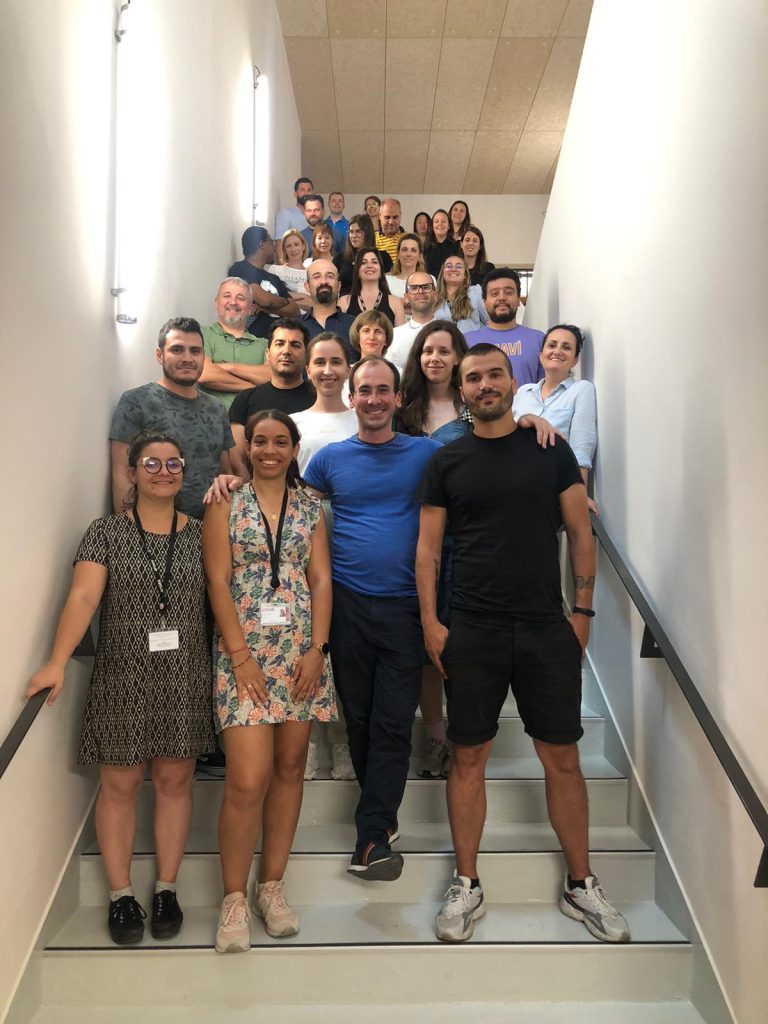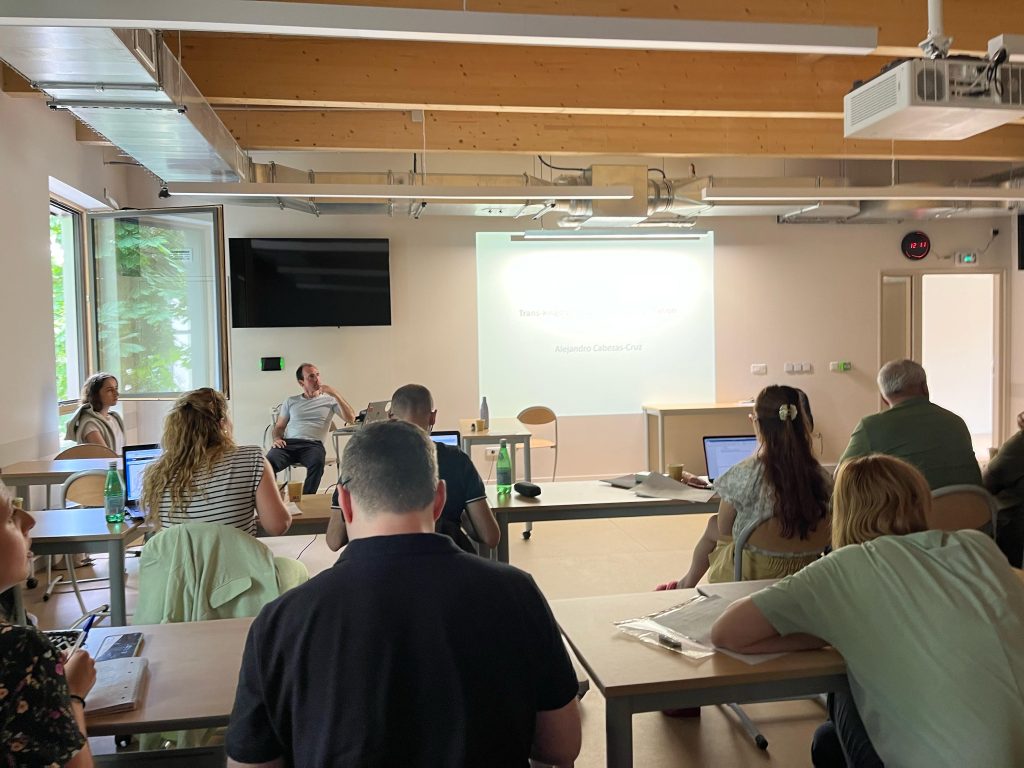We’re thrilled to announce the successful PRAGMATICK Training School on Vector Microbiome, organized by the NeuroPatick lab in Maisons Alfort on July 26th and 27th. With 20 participants from 14 countries, it was an inspiring international gathering that fostered knowledge exchange and networking among vector microbiome researchers. The event set high standards, serving as a benchmark for future PRAGMATICK initiatives. We extend our gratitude to the participants, speakers, trainers, and the NeuroPatick lab team for their outstanding efforts. Check out the captivating photos capturing the joyful atmosphere and intense learning moments. Together, we’re shaping the future of vector microbiome research and making a global health impact. Thank you for making this Training School a success!

PRAGMATICK (COST-Actions)
Coordinator: Dr. Alejandro Cabezas-Cruz, INRAE, France
Contact (Email): alejandro.cabezas@vet-alfort.fr
Lecturers
Dr. Alejandro Cabezas-Cruz, INRAE, France
Dr. Dasiel Obregón Alvarez, University of Guelph, Canada
Dr. Andréa Cristina Fogaça, University of São Paulo, Brazil
Dr. Fabien Vorimore, ANSES, France
Dr. Alejandra Wu-Chuang, INRAE, France
MS. Apolline Maitre, INRAE, France
MS. Lianet Abuin-Denis, INRAE, France
MS. Elianne Piloto-Sardiñas, CENSA, Cuba
Trainees
The capacity is limited to 20 trainees at different career levels (e.g., PhD students, professors, PI).
Where
22 rue Pierre et Marie Curie, 94700 Maisons-Alfort, France
When
26 June 2023 and 27 June 2023
Introductory note
Conflict and cooperation result from arthropod-microbes interactions. Evolutionary and ecological analyses revealed a continuum in which free-living microbes can become part of arthropod microbiota, then facultative symbionts and at a later stage such interactions can result in obligate symbiosis. Interestingly, obligate symbionts can escape the arthropod hosts and become pathogens with life cycles involving vertebrate and invertebrate hosts. While microbes are recognized as a driving force in arthropod evolution and ecological diversification, some researchers recently argued that some arthropod species are not necessarily associated with microbes. This stirs debate and reclaims a deeper understanding of the evolutionary and ecological conditions that determine ancient arthropod-microbe assembles and the emergence of novel arthropod-microbe interactions. On the root of arthropod-microbes interactions is transkingdom communication which allows molecular signals of one species to be recognized by the other and respond in consequence. For terrestrial life, the soil is a matrix that influences the microbial composition associated with plants and arthropods. In recent years, special attention has been given to the role of microbes in the vectorial competence of arthropod vectors. Sequencing technologies have enabled the exploration of the microbial complexity contained in the environment and arthropod hosts. The study of arthropod-microbes interactions requires skills in data analysis. Arthropod-microbes interaction has become an exciting research area bringing unparalleled innovation with practical uses in society.
The aims of the training school are:
(1) To provide a theoretical basis to understand the scope of arthropod-microbes interactions.
(2) To motivate students to explore the contribution of microbes in the biological systems they study.
(3) To provide practical tools so they can design experiments including microbiome analysis and carry amplicon sequence analysis as well as AI analysis.
Preliminary program:
Day one: 26 June 2023
Section one 9h00 – 13h00
- Lecture 1: The journey of the microbe, Alejandro Cabezas-Cruz
- Lecture 2: Forces shaping the arthropod microbiome, Alejandra Wu-Chuang
- Lecture 3: Vector-pathogen-microbiome interactions, Andréa Cristina Fogaça
- Lecture 4: Trans-kingdom molecular communication, Alejandro Cabezas-Cruz
Lunch 13h00 – 14h30 (in campus)
Section two 14h30 – 18h30
- Lecture 5: Introduction to microbiome analysis, Dasiel Obregón Alvarez
- Lecture 6: Introduction to microbiome analysis using artificial intelligence (AI), Fabien Vorimore
- Lecture 7: Introduction to network analysis, Apolline Maitre
Day two: 27 June 2023
Section one 9h00 – 13h00
- Practical lesson: Building and interpreting co-occurrence networks
Coordinators:
Apolline Maitre
Elianne Piloto-Sardiñas
Section two 14h30 – 16h30
- Practical lesson: Predicting tick species using microbiome and AI
Coordinators:
Fabien Vorimore
Alejandra Wu-Chuang
Lianet Abuin-Denis



